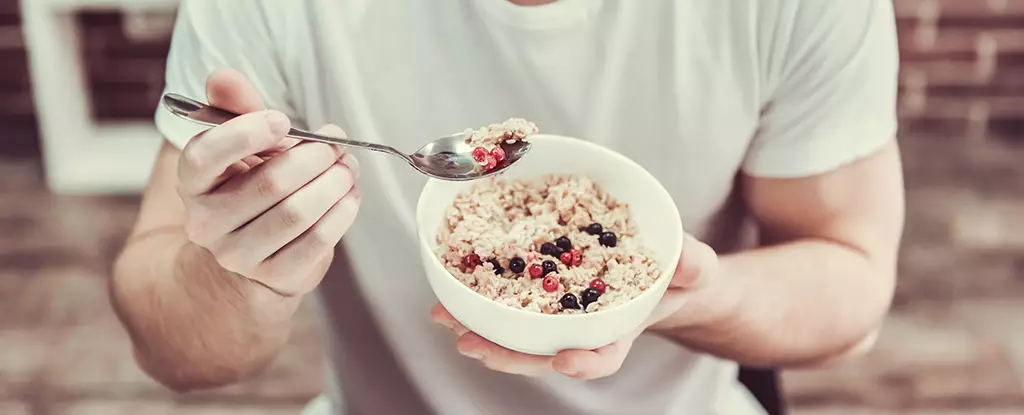When it comes to gaining muscle and losing fat, the traditional approach has always been centered around high-protein, low-carb diets. This method has been hailed as the gold standard for gym-goers and bodybuilders looking to achieve a chiselled physique. However, recent revelations from bodybuilding champion Mark Taylor challenge this long-held belief.
Mark Taylor, a 52-year-old bodybuilding veteran and winner of the prestigious “Mr. Universe” title, shared in a recent interview that his key to success was actually embracing carbs. Despite years of religiously sticking to a high-protein, low-carb diet, Taylor found himself feeling constantly fatigued. It wasn’t until he changed his approach, prioritizing carbs and increasing his overall calorie intake, that he was able to achieve his dream physique.
Muscle gains are a result of structured training, specifically progressive overload training. This involves gradually increasing weight lifted or performing more reps and sets of exercises. Muscle growth is a delicate balance between muscle protein synthesis and breakdown, both processes necessary for overall gains. While proteins are essential for providing the building blocks of muscle, other nutrients such as essential fats, vitamins, and minerals also play a crucial role in the muscle-building process.
Daily protein intake alongside consuming enough calories is paramount for muscle gains. Consuming fast-releasing proteins post-exercise can accelerate muscle protein synthesis in the short-term. While some studies suggest combining carbs and protein after exercise may increase muscle protein synthesis, the importance of amino acids in this process cannot be overlooked.
Carbs trigger insulin production in the body, which has been shown to reduce protein breakdown. However, if sufficient protein is consumed post-exercise, additional carbs may not be necessary from a muscle-building perspective. The choice of carbs, such as low glycemic index (GI) foods like sweet potatoes and porridge, can impact overall energy levels and muscle glycogen stores.
Many bodybuilders go through bulking and cutting phases to increase muscle mass and reduce body fat. While low-carb diets are popular for promoting fat loss and a lean physique, they may also lead to weakened immunity, fatigue, and reduced performance. Carbohydrates supply energy in the form of glucose, stored as glycogen in muscles for fuel during intense training.
Balancing protein and carb intake is essential for maximizing muscle gain potential. Feeding muscles with protein while fueling workouts with carbs can provide an effective strategy for achieving fitness goals. The combination of low and high GI foods throughout the day can support training and recovery efforts, providing sustained energy and promoting glycogen replenishment.
The role of carbs in muscle gain and overall performance is a topic that requires reevaluation. While high-protein, low-carb diets have long been considered effective for achieving a chiselled physique, embracing carbs may offer a different approach for some individuals. By balancing protein and carb intake, choosing the right types of carbs, and optimizing training and recovery strategies, individuals can maximize their muscle gain potential and achieve their fitness goals.



Leave a Reply